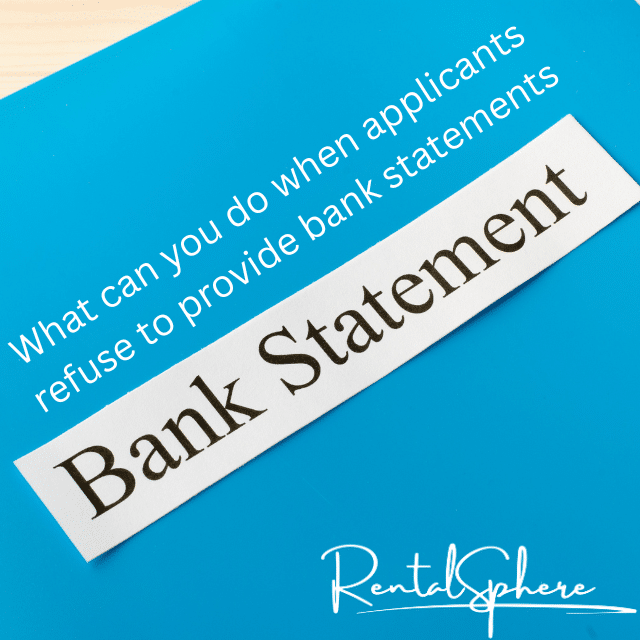The question of whether or not to re-assess rental applications ‘in process’ and/or approved prior to Lockdown has been put to me, and variations of it have been asked on various social media platforms, a few times recently, which isn’t surprising given the new paradigm of Rentals Un-usual . . .
This question does not have a simple ‘one size fits all’ answer, so I thought it would be useful for me to formulate and share my thoughts and advice on this matter . . .
#1: Does your Application Form include the ‘Three Magic Words’?
My very first question is . . .
“Do you have the permission of the applicant/s to re-assess them? “
This would depend on your rental application form. In particular, contains the ‘magic words’ ‘at all times’, as in the example below . . .

If your application form does not contain those three ‘magic words’, then you probably don’t need to read further – particularly if you have already completed the necessary reference checks that you were authorised to do.
Why? Because you may already have ‘used’ the permission you were granted as a ‘once-off’ and would therefore possibly not have the permission of the applicant/s to re-assess – unless they give their express permission for you to do so.
If Yes, read on . . .
“Why would you like to re-assess applicants?”
Or, phrased differently . . .
“What do you hope to achieve with a re-assessment?”
The next question is . . .
“Where exactly are you in the application process with the applicant/s you want to re-assess?”
Depending on the answers to the above, there are a few questions that may follow . . .
- was the application approved?
- was the approval communicated (in writing, or verbally) to the applicant/s?
- was the approval conditional, or confirmed?
- does your rental application form give you permission to re-assess the applicant/s?
So, where are you in the Application Process with the Applicants you want to Re-Assess?
The application process that I am basing my advice on is essentially as follows:
- Stage #1: Application Submitted
- Stage #2: Application Processed
- Stage #3: Recommendation Sent to Landlord
- Stage #4: Landlord Instructions Received
- Stage #5: Outcome of Application Communicated to the Applicant/s (preferably ‘conditional’ approval)
- Stage #6: Applicants Fulfill any Conditions
- Stage #7: Applicants & Landlord Sign the Lease Agreement
Applications in Stages #1 – 4
I’m not going to go into Stages #1 – 4 above in much detail as any applications that are currently in these stages of the rental application process have not yet been approved, and /or the approval has not been communicated to the applicant/s and the process has not therefore been concluded.
The most most crucial step in the above process that determines your options is Step #5 – your options before this step, and after this step differ markedly.
For applications in stages 1 – 4 I believe you could safely re-assess the applications,
To be on the safe side, and totally transparent with the applicants I propose the following course of action
- Inform the applicants that due to the current State of Disaster and the changes in the circumstances of many South Africans, your company has taken a decision to halt the processing of all rental applications currently in process and to ‘re-start’ the process afresh.
- Provide them with a new, blank application form and request them to please re-apply with a fresh application with new / updated / current information.
I think this is the best way to ‘reset’ the application process and give you the opportunity to get updated and accurate information and to approach references (including employers, current landlords, etc) to ask ‘new’ questions pertinent to the changed situation, including:
- Employers:
- Has the applicant’s income been affected, or do you expect it to be affected, due to the current situation – and is it likely to be affected if there is any extension to the current situation?
- Current Landlords / Agents:
- Has the applicant applied for any form of rent deferment or reduction?
- What is the current status of the applicant/s rental deposit?
- Has the rental deposit been applied to the payment of any rent?
- Has the applicant acted responsibly with respect to any payment problems during the current State of Disaster?
Stage #5: Outcome of Application Communicated to the Applicant/s
This stage of the application is a determining step in terms of what recourse may be available.
If the applicants were informed (either verbally, or in writing) that their application was successful, there may already be a verbal lease agreement in place – whether a written agreement has been signed or not.
How?
- Lease agreements in South Africa do not need to be in writing
- Confirmation of approval of a rental application can be argued to be verbal lease agreement, if the applicant/s decide to challenge any change in decision
If, however, the approval was ‘conditional’, the situation is totally different. which is why I always advise rental agencies to only approve rental applications conditionally.
What do I mean?
Here’s a screenshot of the Rental Application Approval Communication Template that is included in my training course Rental Applications 102: Best Practices for the Processing & Screening of Prospective Tenant Applications:

If you include these requirements in your application approval communication, it is clear to the applicants that until they fulfil BOTH of these criteria, there is no lease agreement – in fact the approval of their application is not actually confirmed – it’s conditional! I believe this protects all parties and prevents any confusion or misunderstandings.
If your communication of approval had criteria attached and these criteria have not yet been fulfilled in full, then I believe it is clear that there is no firm commitment or approval and you definitely do not yet a lease agreement in place. In this instance I believe you should be safe following the same process as proposed for applications in process up to and including Stage #4 (see above).
On the other hand, if you have communicated approval to the applicants unconditionally (i.e. without the provisos as per the screenshot above), then, depending on the circumstances, you may have inadvertently created a tacit, verbal lease agreement – at the very least the application has been approved formally – whether or not this approval may be retracted, would depend very much on the terms and conditions, or detail and acknowledgements, contained in your application form.
There is no general rule one can apply here unfortunately and your recourse (the possibility of retraction of approval or not) would depend on the specific circumstances and what exactly was communicated to the applicant/s – in writing and / or (often more importantly) verbally by any employee of your company.
This can only be established on a case by case basis, after full investigation of all the circumstances and communications.
Stage #6: Applicants Fulfil Conditions
If the approval, or final approval, was subject to some or other performance the the applicant, i.e. conditional, and they have fulfilled those conditions, then I believe that the approval is now final.
This would, however, ONLY apply if ALL conditions that were set to finalise or confirm the approval have been satisfied.
For example, in the Rental Application Approval Communication Template I shared above, there are two conditions that need to be met, namely:
- payment of the move-in costs, and
- signing of the lease agreement by both parties
In this case, if the latter had not yet been finalised, and the lease is maybe only partly signed, i.e. signed by only one party, and/or acceptance / signature of the agreement by the second party has not yet been communicated, to the first signing party, then it’s possible that there no binding lease agreement between the parties.
Stage #7: Applicants & Landlord Sign the Lease Agreement
Once the lease agreement has been signed by all parties and all parties have been provided a copy of the fully signed agreement, then you are past ‘the point of no return’.
There is not a binding lease agreement in place and usually the only legal recourses for termination of such an agreement would be limited.
Some examples of legal termination of a lease agreement would be:
- breach of the agreement by either party, the party in breach being given notice of said breach to reciticy said breach by a deadline date, and the breach not being rectified by the deadline date, or
- early termination of the lease agreement by the tenant/s, as permitted under the Consumer Protection Act, or
- termination or the lease agreement by either of the parties as provided for in lease terms and conditions


